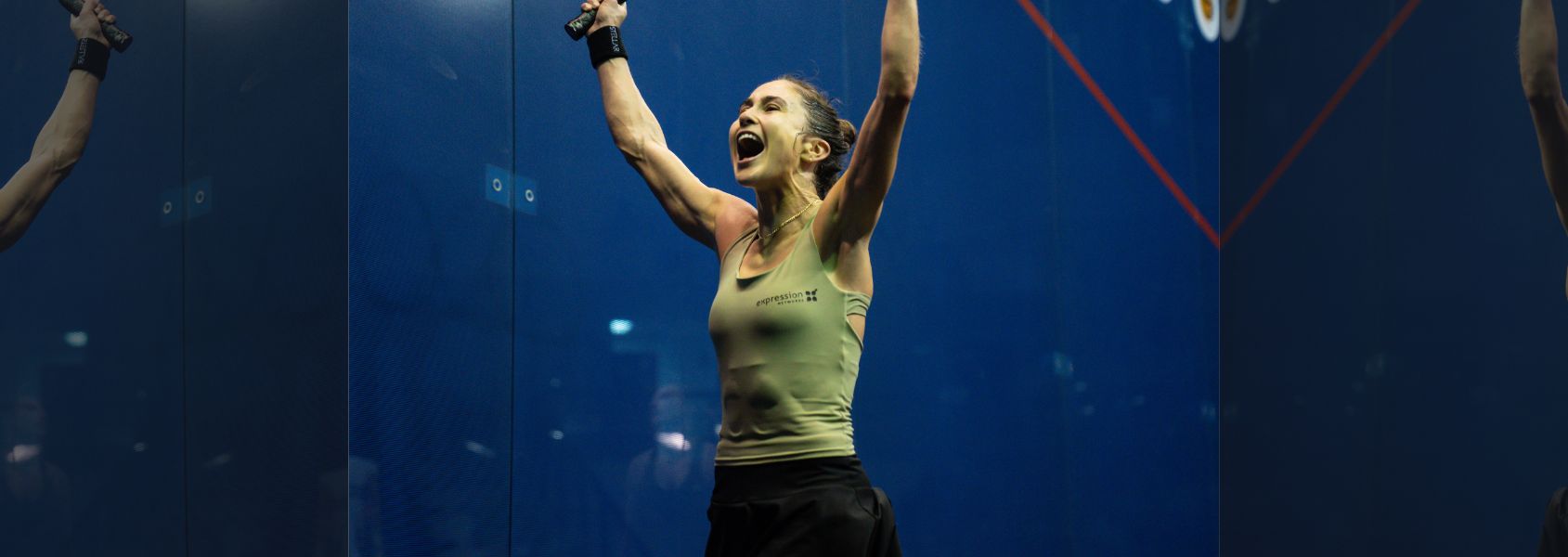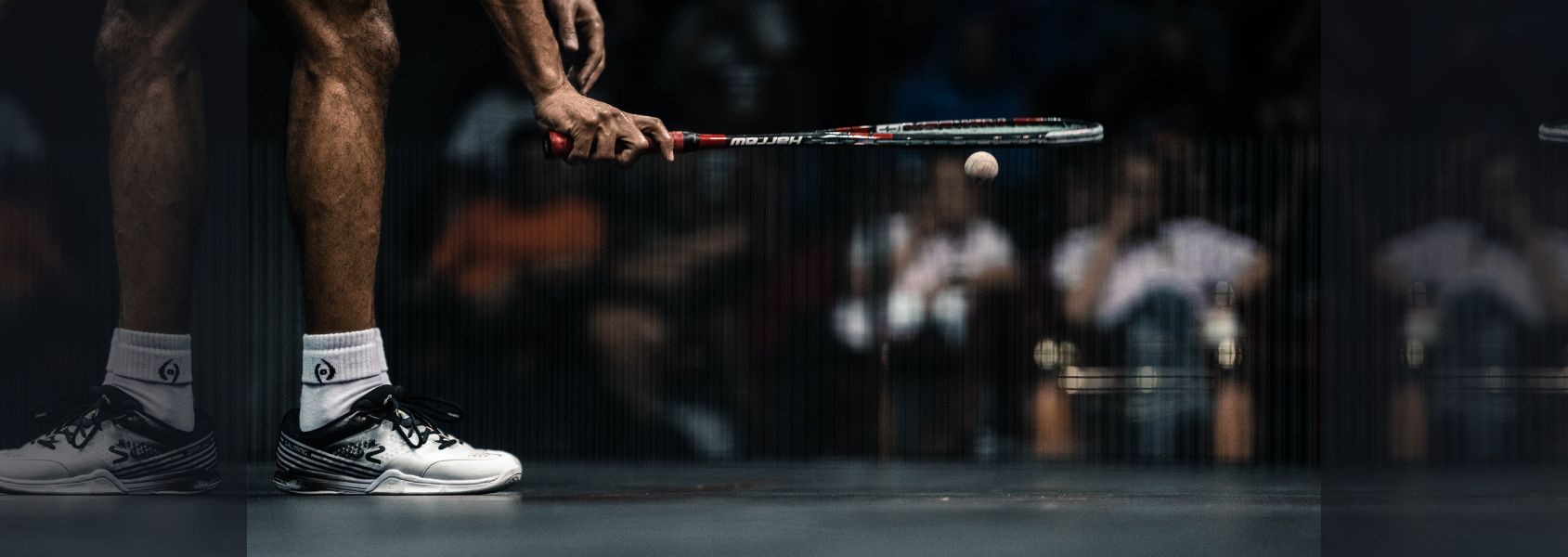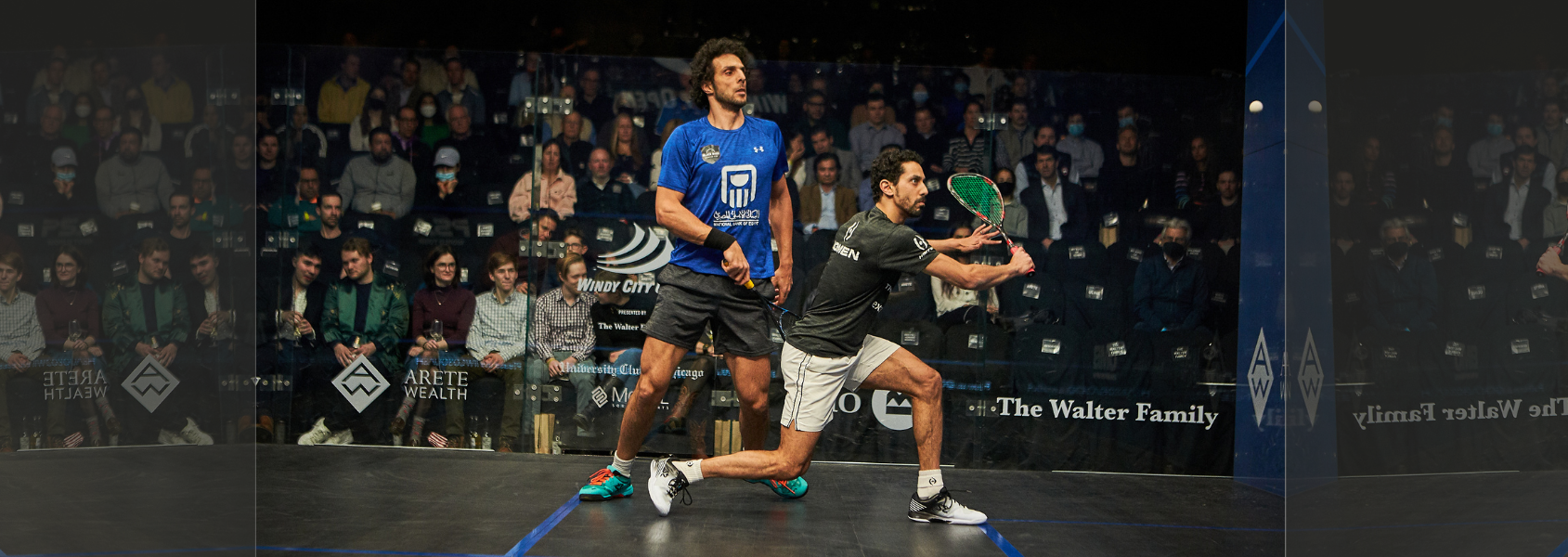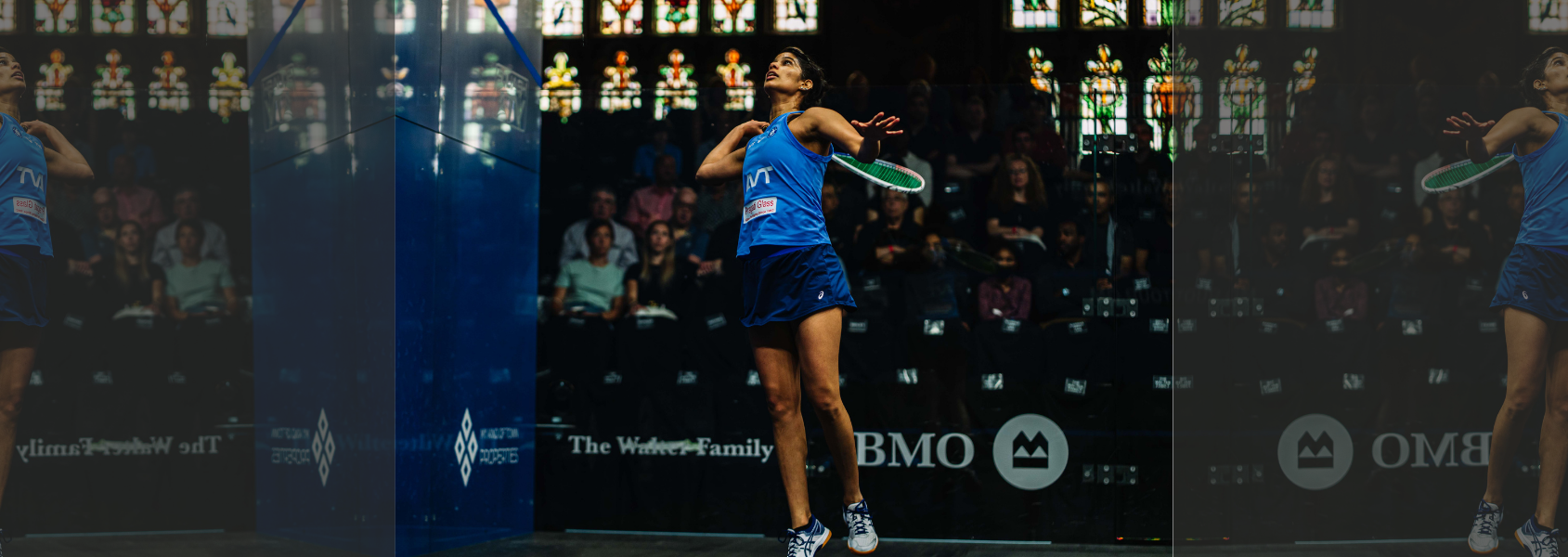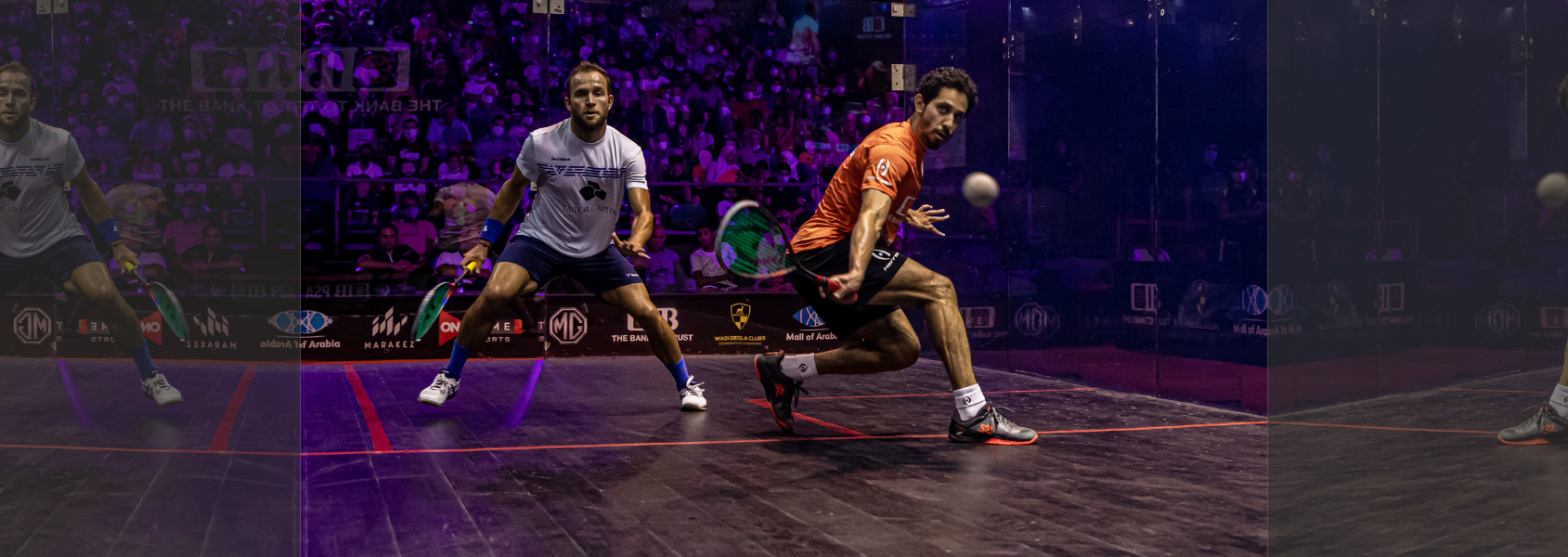Playing with the Handbrake On: Overcoming Mental Barriers
Playing sports is often seen as a liberating activity, a chance to push physical boundaries and experience the thrill of competition. However, for many athletes, this potential for freedom is hampered by a different kind of boundary—mental stress, tension, and anxiety. This phenomenon, aptly described as “playing with the handbrake on,” can significantly impact performance, enjoyment, and the longevity of your time within your sport.
This article explores the nature of these mental obstacles and their effects, and provides some practical strategies to help release the ‘mental handbrake’ and allow you to hit the court playing with more freedom.
The Power of Patience in Training Progression
In the pursuit of athletic excellence, the temptation to push ourselves to the limit can be tempting. Yet, as squash players, we must recognize the importance of patience and gradual progression in our training journeys. This article explores the importance of properly managing an increase in training load, highlighting the potential risks of too rapidly increasing training progressions, and emphasising the importance of building up training gradually over a more prolonged period.
The Power of Positive Self-Talk
In the competitive world of sports, the mental game can often be as decisive as physical skills. Athletes who cultivate a positive internal dialogue gain a powerful ally in the pursuit of peak performance. This article explores the art of positive self-talk for squash players, emphasising the significance of being supportive in the way players converse with themselves, and drawing parallels to the encouragement one would extend to a teammate or student.
Coaching skill sets – IQ and EQ
Coaching requires multiple skill sets that can be differentiated into two core categories, EQ and IQ. When combined, these are behavioural skills.
The Impact of Stress
For amateur squash players straddling athletic aspirations alongside their other life commitments, peak performance means navigating a complex terrain of stressors that can profoundly influence physical output. Understanding the nuanced effects of day-to-day mental stress as a part-time athlete is paramount to not only optimising sporting potential, but also for balancing overall well-being.
Wisdom From a Master – Scripted, with Ali Farag
If you’re seeking inspiration, look no further. No, not from me! Check out “Scripted” with Ali Farag right now! If you’re on the fence, keep reading for my take on the wisdom Ali shares, and then go watch it. Seriously.
Ali Farag on His Mental approach, Life on Tour, and Overcoming Challenges
I recently had the pleasure to sit down with current World Number One, Ali Farag. Ali’s someone I have a huge amount of respect for, and who I always enjoy speaking with, his wisdom goes beyond the squash court and it’s always fascinating to understand more about how he approaches adversity both inside and out of the four walls.
Achieving a World-Class Mindset: The Path to Improvement for Club Squash Players
Squash is a sport that demands skill, precision, physicality, and mental fortitude, this is why it continues to produce many world-class athletes who push the boundaries of performance. While club squash players may not attain the same level as these professionals in terms of skill and physicality, they can match their mindset by approaching each practice session with a clear purpose and focused attention to detail.
In this article, we will explore how adopting a world-class mindset can improve the game of club players and contribute to the overall development and enjoyment of squash.
Unleashing the Champion Mindset: 3 Winning Strategies for Success
When we think of champions, we often imagine them in their moments of glory, basking in the limelight of success. It’s easy to assume that they have some innate talent or skill that sets them apart from the rest of us, making their victories seem effortless. But the truth is, becoming a champion takes more than just natural ability. It takes a certain mindset, a way of thinking and approaching challenges that sets them apart from their competitors.
The Myth of the ‘Slow Starter’
It’s an oft-heard lament of players, that they’re a ‘slow starter’ and are never able to get going right off the bat in their matches. There’s no real physiological reason why slow starting should be a thing however, if a proper pre-match routine is constructed and adhered to.
What Is My Game?
Often when I ask players what their strengths are, or what type of game they want to play, a glazed and blank look comes over their faces.
I also get asked the question, “How do I figure out what my game is?”
Even some of the better players I have come across struggle to know and understand what type of game of squash to play.
My hope would be by the end of this blog to arm you with tools about how to discover your game of squash and to thoroughly enjoy the process of this exploration.
The Awesome Power Of Dopamine – To Improve Motivation, Hard Work, Discipline, And Consistency
My hope would be that during the reading and by the end of this blog, you will be able to understand the real power of dopamine and how to leverage it correctly when it comes to key aspects around self-improvement such as developing greater motivation, hard work, discipline, and consistency.
Mastering Consistency During Competition
Consistency is that elusive force that all athletes are trying to attain. It’s the Holy Grail, the Promised Land, Mecca!
Trying vs Effort – The Key To Unlocking Your Full Potential
It may not seem much, but there is a vast difference between trying and effort. The two words sound similar and are often interchangeable in sporting contexts and conversations.
But I will argue they are not, and my hope by the end of the blog would be for you to understand the difference between the two words, and ultimately become aware if you are merely trying, or, putting in full effort. And when understood, use this as the key to unlocking your full potential.
Accessing A Flow State
Flow can be seen and described as an expression of what you currently know how to do. There is a match and symmetry between your skillset and the challenge that is in front of you.
Deliberate Practice – Why You Should Lean Into Reach and Fail
In positive psychology, a flow state, also known colloquially as being in the zone, is the mental state in which a person performing some activity is fully immersed in a feeling of energized focus, full involvement, and enjoyment in the process of the activity. In essence, flow is characterized by the complete absorption in what one does, and a resulting transformation in one’s sense of time.
What Good is Gratitude?
The concept of gratitude has been talked about and studied for some time now and the benefits that come with practising gratitude are undeniable. Gratitude used to be quite an anecdotal topic of discussions but now with world-leading neuroscientists combined with cutting edge brain scanning technologies, gratitude is now being presented through a more scientific lens and the benefits of this attitude are more tangible and accessible than ever before.
Finding Balance Between Flow And Aggression In Matches
I coach, subscribe to, and am a big advocate of stillness, tranquillity, awareness, calmness and ultimately flow when looking to compete on the squash court, and in life for that matter. I believe working on, as well as accessing, these states can lead to achieving high levels of performance on a consistent basis in whatever domain you are operating in.
Goal Setting – Redefined
Goal setting has been talked about as this really big and important thing that we all need to do in our lives to attain success and to reach the dreams that we want. Often goal setting is done with the right intentions and passions at the start but rarely is it ever really and truly followed through with.
Personally, I have spent countless hours and tried varying different methods to goal set and I keep coming back to the same result. I never really follow through with it or achieve my goal. The intentions and the willpower are there. I am excited about my big dream and goal to achieve. I follow the methods I have read about and researched. But time and again it slowly fades, and that big ambitious dream is put at the back of the cupboard somewhere gathering dust. Does this resonate and sound familiar with you also? This may sound bizarre, but it is because I focussed on my goal, I never achieved my goal. Read on to find out more.








